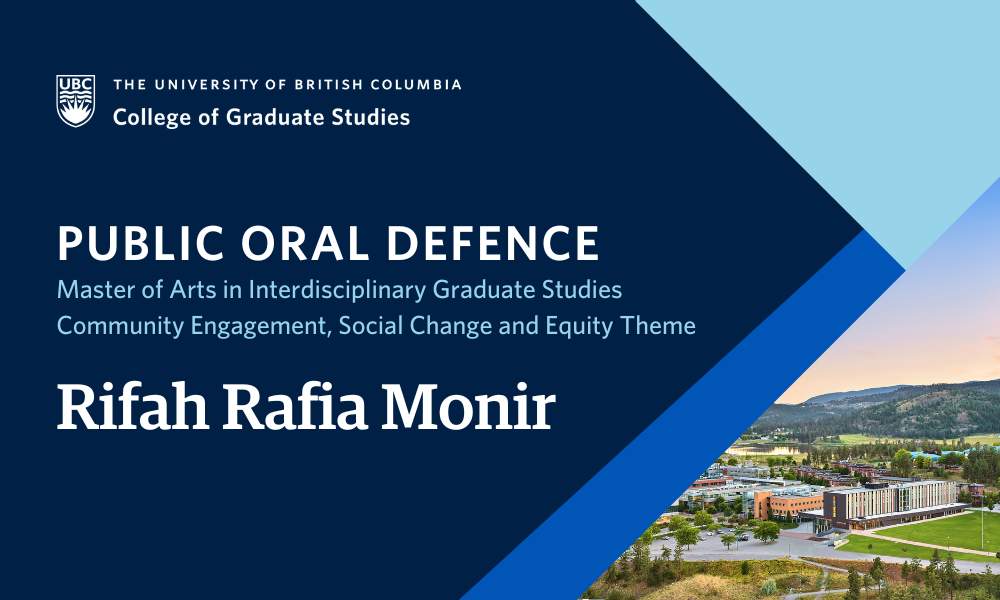
- This event has passed.
Thesis Defence: The Politics of Language among the Rohingya Refugees and their Educational Curriculum in Bangladesh
August 19 at 9:30 am - 1:30 pm

Rifah Rafia Monir, supervised by Dr. Shannon Ward, will defend their thesis titled “The Politics of Language among the Rohingya Refugees and their Educational Curriculum in Bangladesh” in partial fulfillment of the requirements for the degree of Master of Arts in Interdisciplinary Studies – Community Engagement, Social Change and Equity theme.
An abstract for Rifah Rafia Monir’s thesis is included below.
Defences are open to all members of the campus community as well as the general public. Please email shannon.ward@ubc.ca to receive the Zoom link for this defence.
ABSTRACT
This study examines how politics shape the educational curricula at learning centers for Rohingya refugee children in Bangladesh. Reviewed literature covers existing scholarship on language and education among refugee children, as well as educational policy documents published by the government of Bangladesh, and textbooks and other learning materials for Rohingya children. To examine these sources, the study draws on the theory of language ideologies, which is concerned with the intersections between language, politics, and social status. The framework of language ideologies helps to explain how a language belonging to a socially subordinate group can be devalued by dominant social groups and excluded from formal education. By using this background literature and theoretical framework, the study examines the ideologies that drive Bangladesh’s language policy for Rohingya refugee education, assesses current language-related challenges in the classrooms, and considers the possible inclusion of the Rohingya language in Rohingya children’s formal education. Original data for this thesis comes from in-depth virtual interviews conducted with instructors teaching in the camps, non-governmental organization (NGO) officials working in the camps, and government officials responsible for policy-making and management of the camps. The ethnographic analysis of this data presents the existing viewpoints and preferences of instructors, NGO officials, and Bangladeshi government officials regarding limitations and possibilities for Rohingya children’s education.